ATLANTIC CITY — It was 22 ½ hours until the start of the biggest event of Dmitriy Salita’s career as a boxing promoter, the homestretch when he needed to make sure all of the kinks were ironed out: contracts, tickets, paychecks.
But he turned his cellphone off, watching the time carefully.
In a 15th-floor hotel room with floor-to-ceiling windows overlooking the brightly lit Ferris wheel on Atlantic City’s boardwalk, he bowed his head and flipped through a thick, pocket-size book, whispering to himself and pacing back and forth in prayer.
He then sat in a chair with a plate of food and settled in for the next 24 hours, when he essentially would be walled off from any involvement in a production that could vault — or set back — his budding promotional career.
Salita, a 37-year-old former welterweight, is the rare Orthodox Jew in big-time boxing and, as such, he observes the Sabbath.
From sundown Friday to sundown Saturday, he adheres to the faith’s prohibitions on phones, television or internet, and perhaps most difficult for his line of work, handling money.
For Salita, it has long presented a challenge in an occupation in which some of the most important work happens at the very time his faith demands he cloister himself.

When he was a boxer, it had limited his ability to fight in the summer when the sun sets late. As a promoter, he has had to miss some of his fighters’ matches and use creative scheduling to make payments.
This past weekend, it meant trusting that his small team would take care of any last-minute problems and that he would arrive late to an event headlined by his top fighter, Claressa Shields, taking on Christina Hammer for the undisputed middleweight world title.
“You’re down for the count, champ,” Kelly Swanson, one of Salita’s publicists, told him as Salita chuckled and prepared to eat Shabbat dinner Friday night.
Salita was 9 when his family moved to Brooklyn from Odessa in what is now Ukraine. When his mother was hospitalized with breast cancer a few years later, he was introduced to the rabbi at Chabad of Flatbush, a synagogue belonging to a branch of Hasidic Judaism. Salita began exploring his faith more deeply, inspired in part by the fact that he was in a country with religious freedom, he said.
But he also received encouragement from an unlikely source: Jimmy O’Pharrow, his boxing trainer at the Starrett City Boxing Club in Brooklyn. Salita had started going to O’Pharrow’s gym at 13 and was the rare white fighter there. O’Pharrow, who died in 2011, had said about Salita, “Kid looks Russian, prays Jewish and fights black.”
“Jimmy always encouraged my individuality, to learn about myself, my culture,” Salita said. “It gave me confidence to do what I needed to do socially and spiritually.”
By the time he turned professional in 2001, Salita was observing the Sabbath.
He could not fight on Friday nights, a showcase for up-and-coming fighters. Those who followed his career said his religion had little to do with his never winning a world title during this 12-year career. Although he had a 35-2-1 record, his only shot at a world championship, against Amir Khan in 2009, ended by technical knockout 1 minute 16 seconds into the first round.
“The truth is that his skill level didn’t match up with a class profession,” said Bob Arum, Salita’s first promoter.
Salita started promoting as a way to resurrect his career. After losing to Khan, he promoted the next card on which he fought. He got the Jewish Channel to broadcast the fight. He did that for two more of his fights and got into the promotional business full time after his last fight in 2013.
Oscar De La Hoya and Floyd Mayweather Jr. are among the marquee faces of a trend of boxers becoming promoters. But Salita has a much tougher road because his fighting career was not nearly as heralded as theirs, and he does not have the flair and drama of big names like Arum and Don King.
But what Salita lacks in star power, people say he makes up for with his earnest style and strategy. He is personable and talks so softly sometimes that people have to lean in to hear him.
When he came to Shields, a two-time Olympic gold medalist, he brought a newspaper article he had read about her and a vision for her career.
“When I had a conversation with him about me becoming world champion within seven fights, fighting on Showtime, me becoming a millionaire, he said, ‘Everything you are saying is obtainable, but I see more for you,’” Shields said.
Salita began promoting Shields in her second professional fight. By her fourth fight, she won her first world title. On Saturday, she faced Hammer, who was undefeated, in a unification fight on Showtime. It was the first time that women had headlined a Saturday night card televised on Showtime.
And so it was that Salita sat nervously in his dark hotel room at 7:30 p.m. on Saturday, anxious as the minutes ticked. The undercard fights started at 6 p.m., but the Sabbath did not end until 8:15.
When the clock in the room hit 8:16 p.m. — he likes to have a minute buffer — Salita was up and in the bathroom, putting on his suit. He took out his prayer book, flipped through the pages, whispering a prayer. He kissed it and at 8:24 p.m. was out the door, his eyes trained on his cellphone as he texted nonstop.
He quickly got a call. Someone could not find the tickets that were supposed to have been left for them at the arena.
“O.K., I’m on my way over there,” he said.
He stopped in a friend’s room, they chanted a final Sabbath prayer, and Salita poured himself a shot of Cognac.
“Yeah, he’s nervous,” the friend, Vadim Tovshteyn, said.
8:44: In an Uber, and Salita got another call. “Six minutes away, one mile,” he told the person on the other end.
8:48: Another call. “Two minutes away,” he said.
8:52: “Yeah, I’m walking in,” Salita said over the phone.
In the arena, it was greetings all around for Salita, who wears a black skullcap with his gray suit. He checked on Shields in her dressing room, where gospel music blasted as she got her hands wrapped, and then he took his seat ringside.
The upstart nature of Salita Promotions, with a core staff of about four, was clear. The fight was in a 3,500-seat auditorium. It was nearly full. The crowd was spirited, but nowhere near the size of most major championship fights. Still, it was a long way from the club shows he promoted early on, where he lost money and could not get a major broadcaster to pay attention. And the result, he said, was significant, not just for boxing, but for society.
Shields dominated the fight to move to 9-0 and hand Hammer, whom Salita also promotes, her first defeat in 25 bouts. Everyone was high-fiving and hugging Salita, who believes Shields could become a bona fide star.
Eddie Hearn of British-based Matchroom Boxing promotions said the Shields-Hammer bout could have benefited from a “major promoter,” according to BoxingScene.com. But with the biggest female star in Shields, some said that Salita could corner a market that many big-name promoters have ignored.
“If you’re an established female fighter, I want Dmitriy to be my promoter,” said Steve Farhood, a Showtime boxing analyst.
Salita is now looking forward to what will undoubtedly be his most lucrative bout as a promoter. Jarrell Miller, a heavyweight who was the first fighter Salita signed, faces Anthony Joshua, the world champion from England making his United States debut, at Madison Square Garden on June 1. Miller is a big underdog, but an upset would be like a golden ticket for Salita’s promotional career.
“He has a good flair for promoting; he is something special,” Arum said.
After the news conference on Saturday night, Salita reflected on a Jewish belief that God created everything with a purpose, and “as a human, you do your best to make it reach its potential.”
“As a promoter,” he said, “my responsibility is to make sure every fighter does the best they can with what they’ve got.”
Article courtesy of the New York Times and Salita Promotions

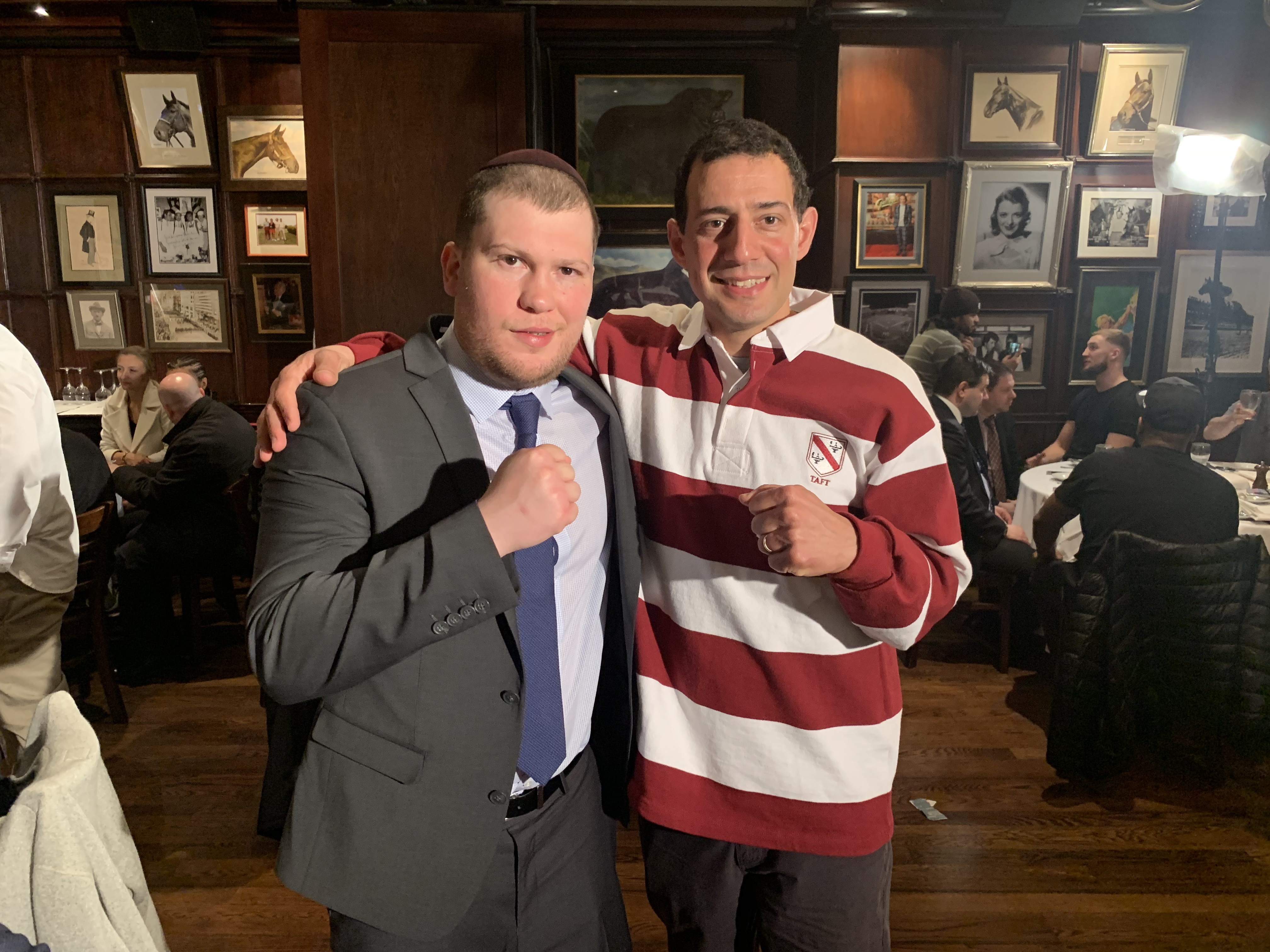
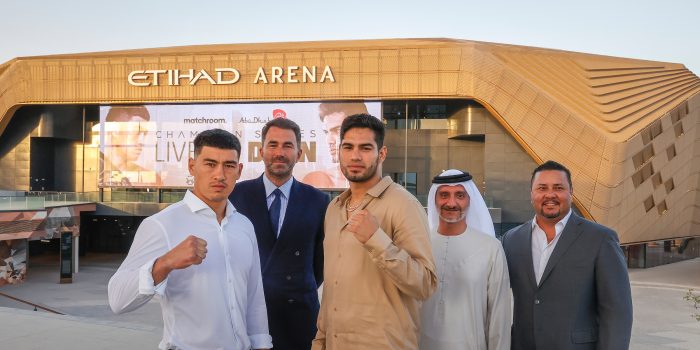
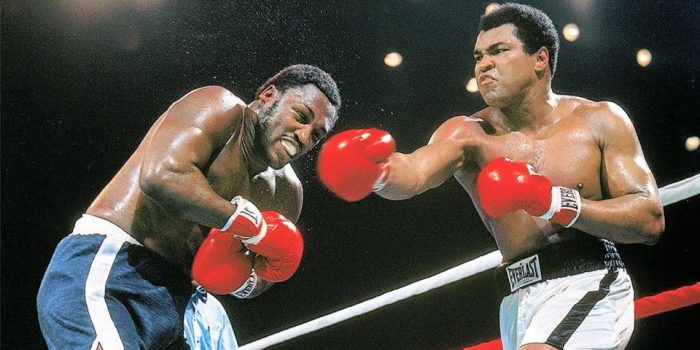
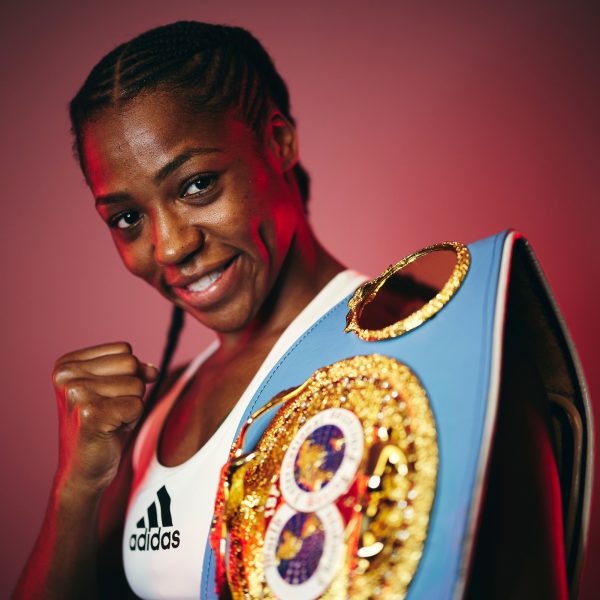
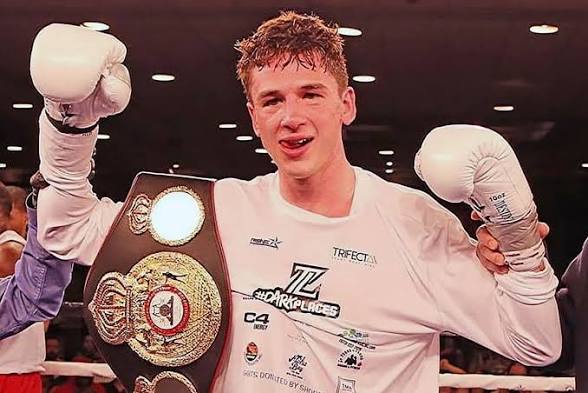



Recent Comments